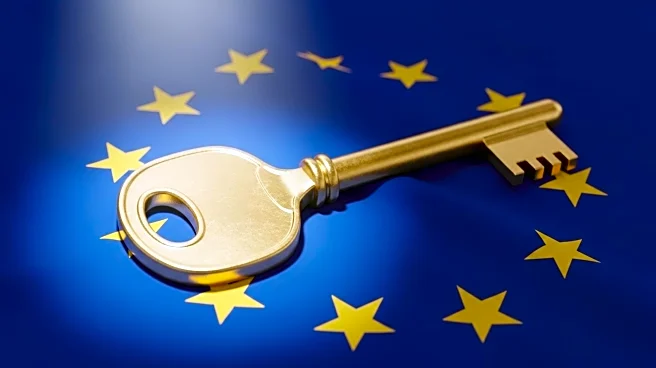What's Happening?
Moldova recently held a pivotal election, demonstrating resilience against Russian interference as it seeks to join the European Union by 2030. Despite attempts by the Kremlin to derail Moldova's EU ambitions through propaganda, cyber-attacks, and vote-buying, the pro-European president, Maia Sandu, secured a mandate for her ruling party, PAS. This victory allows the government to pursue necessary reforms for EU membership. Moldova's determination to align with the EU reflects its desire for democratic freedoms and stability, amidst economic challenges and geopolitical pressures.
Why It's Important?
Moldova's election outcome is significant for its geopolitical implications, as it represents a setback for Russian efforts to expand influence in Eastern Europe. The country's pro-European stance strengthens the EU's position as a democratic magnet, offering a lifeline against authoritarianism. Moldova's alignment with the EU could enhance regional stability and economic prospects, benefiting its citizens and neighboring countries. The election underscores the EU's role in supporting democratic aspirations, amidst challenges from both Russian interference and internal political dynamics.
Beyond the Headlines
The election highlights the broader struggle between democratic values and authoritarian influences in Eastern Europe. Moldova's choice to pursue EU membership reflects a desire for integration and protection against external threats. The situation illustrates the EU's challenges in balancing defense and democratic principles, as it faces pressures from both Russia and internal far-right forces. Moldova's resilience serves as a reminder of the importance of democratic institutions and the need for continued support for countries seeking EU integration.










